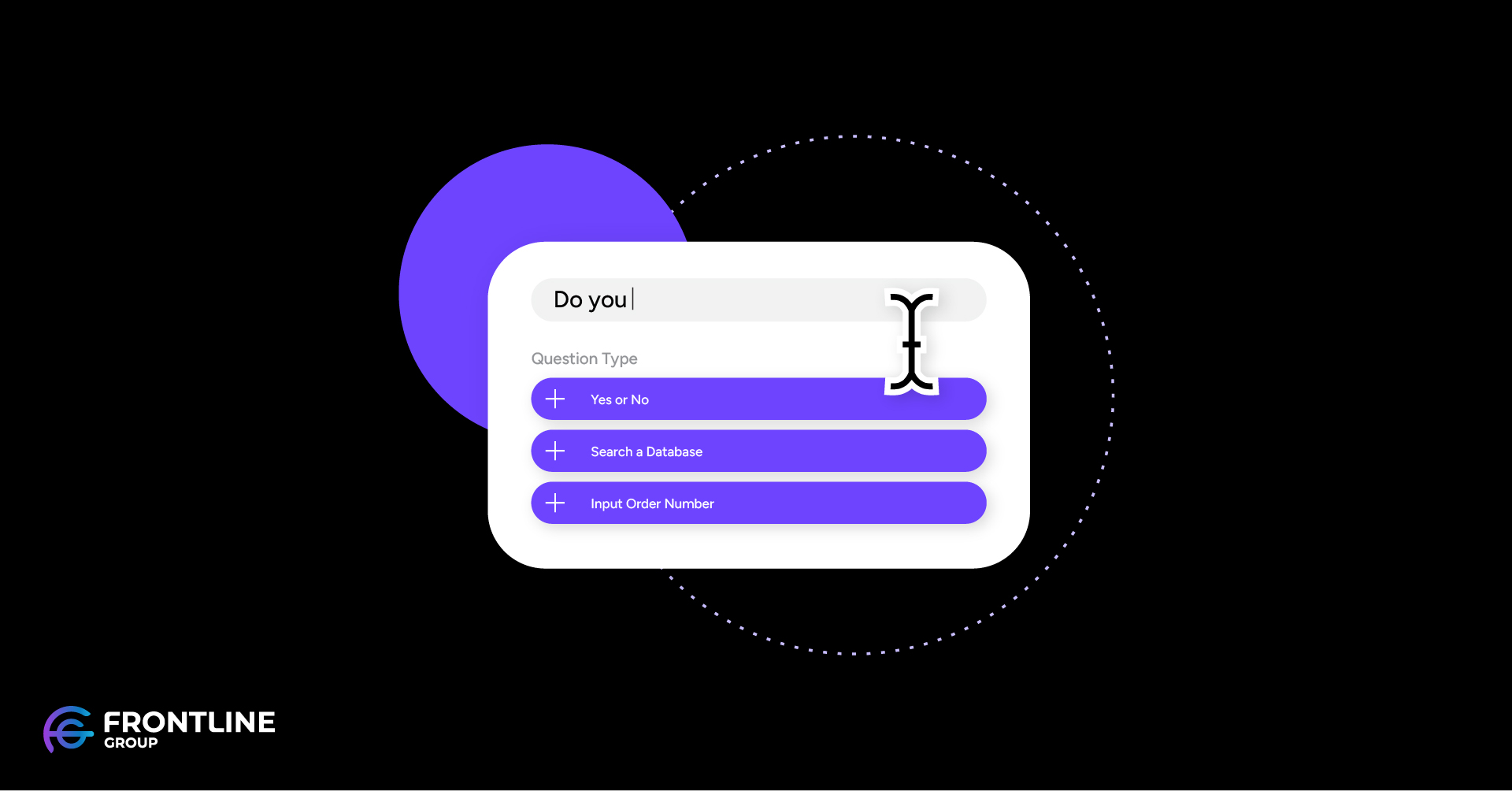
In the fast-paced world of customer service, the evolution of support mechanisms has been nothing short of revolutionary. From the traditional call centers manned by rows of agents to the sophisticated, automated operations of today, the landscape has transformed dramatically. This shift is largely driven by the advent of contact center automation, a key player in today’s customer service domain.
Contact center automation leverages advanced technologies to streamline operations, reduce human error, and enhance customer experience. As businesses strive to meet ever-increasing customer expectations for speed and personalized service, automation becomes not just advantageous but essential.
The Rise of Contact Center Automation
Contact center automation has become a cornerstone of modern customer service, but it’s a broad term that encompasses more than just artificial intelligence (AI). While AI is a significant component, automation also includes simpler, rule-based technologies that can streamline processes without complex algorithms. This can range from interactive voice response (IVR) systems that route calls based on customer input, to software that automatically handles standard inquiries or updates customer records.
The concept of automating contact centers isn’t new. It began with the automation of routine tasks to free up human agents for more complex issues. Over the years, this approach has evolved from basic pre-recorded messages to sophisticated systems capable of analyzing customer sentiment and providing contextual assistance.
This evolution has been propelled by a need to manage increasing customer volume and complexity of inquiries efficiently. Automation enables contact centers to handle common questions swiftly, allowing human agents to focus on interactions that require a personal touch or complex problem-solving skills. By blending automated solutions with human expertise, businesses achieve a balance that maximizes efficiency while maintaining the quality of service.
As we continue to advance technologically, the role of automation in contact centers is expanding, becoming integral to achieving customer satisfaction and operational excellence. Frontline Group recognizes this shift and has integrated a variety of automation technologies into our service offerings, ensuring that businesses can cater to their customers more effectively and efficiently.
Key Benefits of Automation in Contact Centers
The integration of automation into contact centers brings a multitude of advantages that can transform the landscape of customer service. Here are some of the key benefits that organizations like Frontline Group are realizing through automation:
Efficiency and Scalability
Automation greatly enhances the efficiency of contact centers by handling routine tasks such as ticket generation, customer verification, and basic queries. This allows contact centers to manage a larger volume of interactions without a proportional increase in staff, significantly scaling their operations. Automated systems can operate around the clock, ensuring that customer service is continuous, regardless of time zone or local working hours.
Improved Customer Satisfaction
Automated systems are not prone to the fatigue and inconsistency that can affect human agents. They provide consistent, quick responses to inquiries, which is crucial for maintaining customer satisfaction. With automation handling routine inquiries, human agents are available to tackle more complex issues, leading to quicker overall resolution times and a more personalized service experience where it truly matters.
Cost-Effectiveness
By automating routine processes, companies can reduce the need for extensive manpower, which in turn lowers operational costs. Automation also minimizes human error, reducing the time and resources spent on correcting mistakes. This efficiency not only saves money but also improves the overall quality of service, which can lead to increased customer loyalty and retention.
Resource Optimization
Automation allows for better allocation of human resources. Agents are freed from repetitive tasks and can instead focus on areas requiring human empathy and complex decision-making. This not only boosts the morale of the workforce by elevating the nature of their work but also enhances the strategic use of human talent, aligning skills more closely with business needs.
By harnessing these benefits, Frontline Group ensures that their clients can deliver superior customer service, which is both efficient and effective, setting a high standard in the industry.
Challenges of Implementing Automation
While the benefits of automation in contact centers are significant, the path to implementing these systems can present several challenges. It’s crucial for businesses of all sizes to acknowledge and address these potential obstacles to ensure successful automation strategies.
Initial Cost and Integration Complexities
One of the primary barriers to automation is the initial investment required for sophisticated software and hardware. For many organizations, especially small and medium-sized businesses, this upfront cost can be daunting. Additionally, integrating new technologies with existing systems often requires significant time and technical expertise, which can further increase the overall cost.
Balancing Human Touch with Automated Processes
Automation brings efficiency, but it can also lead to a depersonalized customer experience if not carefully balanced. Customers often appreciate human interaction, especially when dealing with complex issues or when they need reassurance. Finding the right mix of automation and human service is crucial to maintaining a high level of customer satisfaction without compromising the personal touch.
Privacy Concerns and Data Security
With automation, a large amount of customer data is processed and stored digitally, raising concerns about privacy and data security. Ensuring that automated systems are secure and comply with data protection laws is essential but can be challenging. This requires continuous investment in security measures and regular updates to safeguard sensitive information.
Resistance to Change
Introducing new technologies can often meet with resistance from staff who are accustomed to traditional ways of working. Training and transitioning employees to new systems involve not just teaching them how to use new tools, but also helping them understand the benefits of automation, which can sometimes be a slow and challenging process.
At Frontline, we’re aware of these challenges and have developed strategies to mitigate them, ensuring that the transition to automated systems is as smooth and efficient as possible for new and existing customers and agents. This proactive approach not only enhances implementation success but also ensures long-term sustainability.
Technologies Driving Contact Center Automation
Advancements in technology have been the linchpin in the evolution of contact center automation. Contact centers can leverage a variety of cutting-edge technologies to enable efficient and responsive customer service solutions. Here are some of the key technologies at the core of automation strategies:
Artificial Intelligence (AI) and Machine Learning (ML)
Artificial Intelligence (AI) and Machine Learning (ML) are pivotal in transforming contact centers from reactive to proactive service providers. These technologies enable systems to learn from data and interactions, improving their responses over time. AI-powered chatbots and virtual assistants can handle a range of customer queries, providing immediate responses that mimic human conversation. This not only enhances customer engagement but also frees up human agents to handle more complex tasks.
Robotic Process Automation (RPA)
Robotic Process Automation (RPA) technology is used to automate routine and repetitive tasks within the contact center. This includes tasks like data entry, processing transactions, and updating customer records. By automating these processes, RPA helps reduce errors, increase speed, and ultimately improve efficiency, allowing human agents to focus on higher-value interactions.
Frontline Group’s Solutions
Frontline Group leverages its expertise to offer tailored solutions that enhance the operational efficiency and customer interaction capabilities of businesses. Here’s how our main offerings, Frontline Connect, Ternio, and Frontline Managed Services, play a role in transforming contact centers:
Frontline Connect
Frontline Connect enhances the efficiency of contact center agents by providing a structured workflow navigation tree. This system helps agents effectively address customer needs or escalate issues through a clear, step-by-step process:
- Step One: Define Processes – Establish clear protocols for handling different types of calls.
- Step Two: Assign Users – Allocating responsibilities to different team members based on expertise and availability.
- Step Three: Start Accepting Calls – Implementing the streamlined process in real-time operations to improve first-call resolutions and overall efficiency.
While not powered by AI, Frontline Connect automates responses and guides agents through predefined steps, significantly enhancing efficiency and accuracy in customer service.
Ternio
Ternio transforms any mobile device into a full-featured contact center terminal, enabling agents to operate from virtually anywhere. This mobile application seamlessly integrates with existing contact center technology, providing flexibility and enhancing accessibility for remote agents. Ternio extends the reach and operational flexibility of traditional contact centers, aligning with the needs of modern businesses and their mobile workforces.
Frontline Managed Services
Our Managed Services offering provides comprehensive management solutions that alleviate the burdens of running a contact center. By handling day-to-day operational tasks, from staffing and training to technology maintenance, Managed Services allows businesses to focus on strategic growth and customer engagement without the complexities of management overhead. This service ensures that contact centers operate smoothly, with optimized efficiency and effectiveness.
These solutions are designed not only to improve operational efficiency but also to enhance the overall customer experience by providing reliable, streamlined, and flexible service options.
Improve Your Contact Center Efficiency With Frontline
The landscape of customer support is continuously evolving, with automation playing a pivotal role in shaping the future of contact centers. While technologies like AI and machine learning are often spotlighted, it’s crucial to recognize the diversity of automation, which encompasses everything from basic procedural automation to advanced analytic solutions. Frontline Group has been at the forefront of this evolution, providing innovative solutions that streamline operations, enhance flexibility, and improve customer satisfaction.
Are you ready to transform your customer support operations? Contact us today to learn more about how our solutions can benefit your business and help you stay ahead in the competitive world of customer service.

Every business is different, that’s why all of our solutions are custom built for you. Let’s chat and see how we can help improve your contact center.

